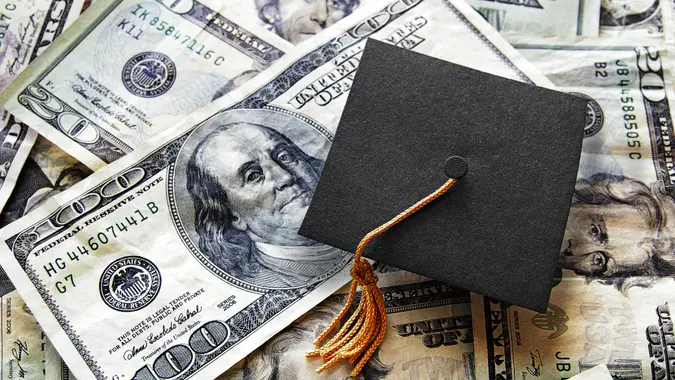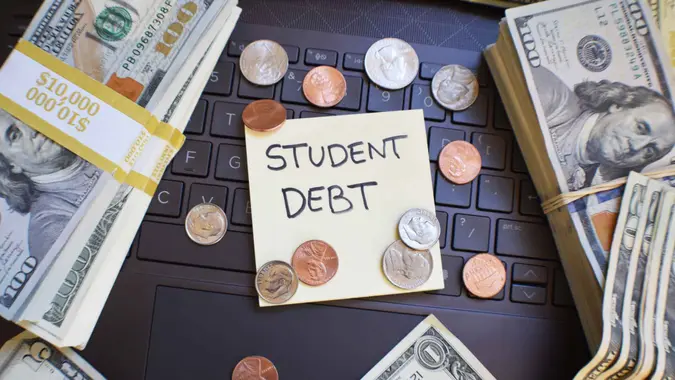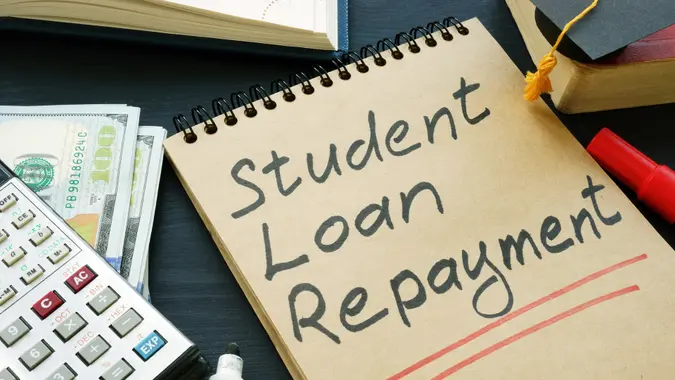If I Pay Off My Kid’s Student Loan Will That Trigger a Gift Tax?

Commitment to Our Readers
GOBankingRates' editorial team is committed to bringing you unbiased reviews and information. We use data-driven methodologies to evaluate financial products and services - our reviews and ratings are not influenced by advertisers. You can read more about our editorial guidelines and our products and services review methodology.

20 Years
Helping You Live Richer

Reviewed
by Experts

Trusted by
Millions of Readers
As a parent, you want to do everything in your power to set your children up for success. And if they go to college and accrue student loan debt, the thought of helping them pay it off may enter your mind. But before reaching for the checkbook, you might wonder — if I give them money toward their loans, will that trigger a gift tax?
We will explore this question so you can decide how best to support your child’s financial future without facing any surprise tax burdens.
If I Pay Off My Kid’s Student Loans Will That Trigger a Gift Tax?
If you want to help your child pay for their student loans, there is a way to do it without triggering a gift tax. However, you need to be able to follow some IRS tax laws.
In 2023, the IRS limit for gifting is $17,000. For couples, it’s $17,000 per person, for a total of $34,000. That said, a gift tax will not be triggered as long as you gift an amount below this threshold.
If you were to gift an amount greater than $17,000, the gift tax is typically charged to the person giving the gift, not the person receiving it. You’ll need to file IRS Form 709 to report the gift.
It’s also important to note that it doesn’t matter if the gift goes directly or indirectly to the recipient. It would still trigger the gift tax if it exceeds the $17,000 limit in 2023. That means that if the money were sent directly to the student loan provider as a payment, it would be treated the same as if the money was given to the child so they could pay the student loan bill.
Avoiding The Gift Tax
If you want to help your children pay for their student loans so they can enter the workforce without debt, there are ways to do so and not trigger the gift tax. As mentioned, you could gift an amount under $17,000 in a specific tax year.
Co-Signing Your Student Loan
Alternatively, if you’re planning ahead, you could co-sign for your child’s loans and then make the payments for them when they become due after college. This would allow you to make the payments without triggering a gift tax.
I’m a Financial Expert With Student Loans: Here’s Plan To Tackle Repayment
Taking Advantage of the Unified Credit
Another option to avoid the gift tax is to use the Unified Credit. This allows a person to avoid estate taxes up to a certain amount once they die. In 2023, the amount is just shy of $13 million. Using the Unified credit, you would apply the taxable amount to your lifetime allowable credit.
To help understand this, let’s use an example. Suppose you want to help your child pay $40,000 in student loan debt. Because $40,000 is over the $17,000 gift limit, you would owe taxes on $23,000 ($40,000 – $17,000). To simplify this, suppose you owe $2,500 in taxes on the $23,000 gift. Instead of paying this $2,500 when your taxes are due, you could apply it to your lifetime Unified Credit amount. Your Unified Credit balance will be reduced by $2,500 once you pass away.
The Bottom Line
If you want to help your children pay off their student loans, it’s possible to do so without triggering the gift tax. However, you’ll need to follow a few simple steps, and it’s always best to consult with a qualified tax advisor to ensure things are done correctly.
 Written by
Written by 

























